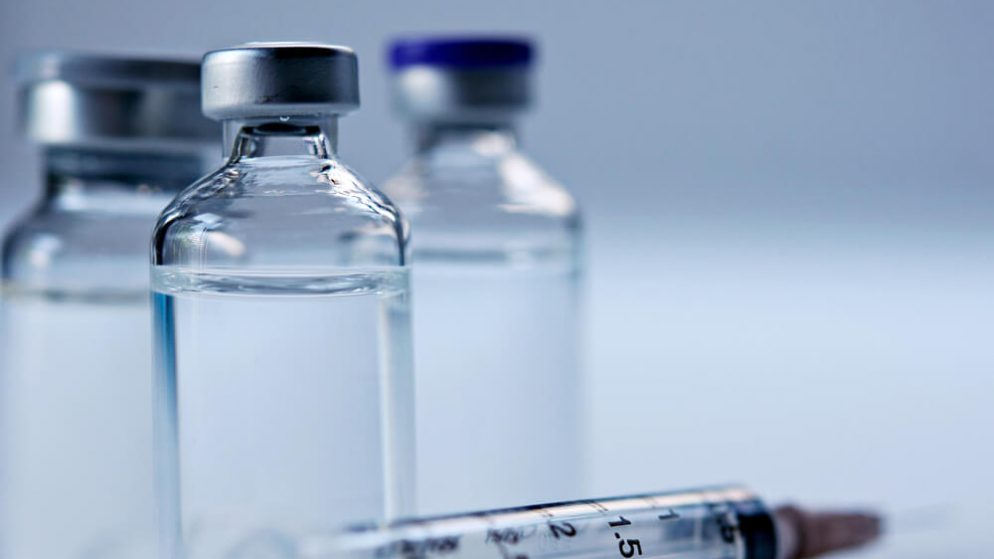



Get new exclusive access to healthcare business reports & breaking news




Patients with type 2 diabetes have to inject themselves with insulin every single day. This is often seen as being cumbersome and could be contributing to a high dropout rate from the patients.
Furthermore, there are more challenges with daily insulin injections such as the accuracy of doses and the timing of the dose, which is quite an inconvenience for patients with type 2 diabetes.
One way of fixing this is to come up with a regimen that is less frequent, but no less effective.
A study that has been described as a potential game-changer, says treating people with type 2 diabetes with a new once-a-week injectable insulin therapy proved to be safe and as effective as daily insulin injections. And a once-a-week injection could provide a solution for the inconvenience that patients with diabetes have to deal with daily.
A phase 2 trial of the insulin icodec (icodec), a novel once-weekly basal insulin analog, investigated two approaches for switching to icodec versus once-daily insulin glargine U100 (IGlar U100) in people with type 2 diabetes receiving daily basal insulin and one or more oral glucose-lowering medications.
Researchers concluded that switching from daily basal insulin to once-weekly icodec was well tolerated and provided effective glycemic control.
“Insulin, which has been the foundation of diabetes treatment for 100 years, is an effective glucose-lowering agent and is safe when used at the correct dose. Insulin treatment is burdensome, requires frequent injections, and continues to carry a certain stigma. The development of effective and safe insulin that can be administered once a week is a huge advance in the field,” said Ildiko Lingvay, one of the researchers in a statement.
To get to their findings, the researchers carried out two studies. The first study involved 205 patients from seven countries that are the U.S., Croatia, Germany, Hungary, Poland, Slovakia, and Spain. The clinical trial consisted of a two-week screening period, 16 weeks of treatment, and a five-week follow-up to evaluate three different ways to adjust and optimize the insulin dose and determine which one presented the best balance between effectively lowering glucose while minimizing low-glucose events.
The second study included 154 patients from five countries; the U.S., Canada, the Czech Republic, Germany, and Italy. A release from UT Southwestern said the second trial followed the same 23-week time frame and evaluated practical aspects of insulin use as well as the best ways to transition from a daily regimen to the new weekly insulin injections. The researchers determined that starting with a higher first dose – called a loading dose – allowed patients to reach their optimal glucose target faster.
“These two studies served as the stepping stones for a large phase 3 clinical trial program that is currently ongoing at UT Southwestern and other sites, which is designed to evaluate the efficacy of once-weekly insulin administration in patients with either Type 1 or Type 2 diabetes. Weekly insulin is a game-changer that will decrease the treatment burden for patients while also improving compliance. This treatment will also decrease the burden on those who care for patients with diabetes requiring insulin,” explained Lingvay.
Lingvay took part in both studies.
The U.S. Centers for Disease Control and Prevention estimates that up to 34.2 million people in the U.S. have diabetes, which translates to about one in 10 people. Of these, 26.9 million people, including 26.8 million adults have been diagnosed with diabetes, while 7.3 million people are undiagnosed.
It is further estimated that 7.4 million Americans with diabetes use one or more formulations of insulin.
Presently, there are only three insulin manufacturers serving the U.S. market, which are Eli Lilly, Novo Nordisk, and Sanofi.
Adding to the inconvenience of a daily injection, the price of insulin in the U.S. is very high, with the cost ranging between $500 to $900 for a monthly supply. To ensure that insulin remains affordable, Illinois Governor J.B. Pritzker signed a bill to cap out-of-pocket insulin costs for some diabetics. Senate Bill 667 caps costs at $100 for a 30-day supply in a bid to prevent people with diabetes from getting into uncontrollable debt.
The bill was signed into law in early 2020.
There has been some significant investment into the treatment of diabetes in the recent past.
DreaMed Diabetes, a developer of personalized, AI-based diabetes management solutions, received a $5 million dollar grant as part of a research study to determine the effectiveness of virtual diabetes care.
In 2020, Virta Health, a company that says it has a treatment to sustainably reverse type 2 diabetes (T2D) without medications or surgery, announced that it had raised $93 million in a Series C financing.
A year earlier, Novo Nordisk announced that the U.S. Food and Drug Administration (FDA) had approved Rybelsus tablets, the first diabetes pill, for adults with type 2 diabetes.